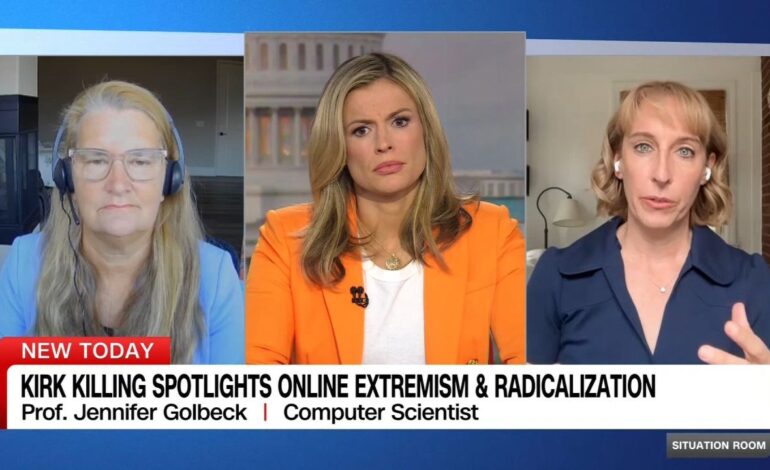Experts warn meme culture fuels youth radicalization NOW

URGENT UPDATE: Experts are sounding alarms over the role of meme culture in the rapid radicalization of young people. In a live discussion earlier today, renowned computer scientist and professor Jennifer Golbeck and prominent psychology professor Jean Twenge joined CNN’s Pamela Brown to break down how online platforms amplify extreme ideologies.
The conversation, held in Washington, D.C., highlighted the alarming trend of youth engagement with polarizing content. As digital spaces evolve, algorithms increasingly push users toward extreme rhetoric, potentially leading to dangerous ideologies. This critical dialogue underscores the need for immediate intervention to protect vulnerable demographics.
New reports confirm that meme culture, often seen as humorous or harmless, can serve as a gateway to radical thought. The experts detailed how seemingly innocuous memes can carry potent political messages, subtly influencing impressionable minds. With social media usage skyrocketing among younger generations, the implications of this trend are profound.
Why does this matter NOW? The urgency is palpable as youth radicalization rates climb. According to recent studies, online radicalization has surged by over 60% in the past year alone, creating a pressing need for awareness and action. With today’s youth more connected than ever, the risk of exposure to extremist content is a critical issue facing society.
During the discussion, Golbeck emphasized, “These algorithms are not just amplifying content; they are shaping the very beliefs of young users.” She called for greater transparency from tech companies and stronger regulations to safeguard against the spread of extremist ideologies.
Similarly, Twenge expressed concern over the psychological impact of this digital exposure. She noted, “The emotional toll on young individuals grappling with these radical ideas can lead to severe mental health challenges. We must address not just the ideas but the underlying vulnerabilities.”
As this urgent dialogue unfolds, both experts advocate for educational initiatives aimed at fostering critical thinking and digital literacy among youth. They urge parents, educators, and policymakers to take immediate steps to counteract the impact of radicalization online.
What’s next? With growing awareness of this issue, advocacy groups are calling for immediate action from social media platforms to implement stricter content moderation policies. Expect further developments as stakeholders from various sectors convene to address the alarming rise in online radicalization.
This crucial discussion highlights the intersection of technology, psychology, and social responsibility. As meme culture continues to evolve, the potential for influence grows, making it imperative that society acts swiftly to protect its youth from harmful ideologies.
Stay tuned for ongoing coverage as experts continue to analyze the implications of these findings and recommend actionable steps to mitigate the risks associated with online radicalization.






